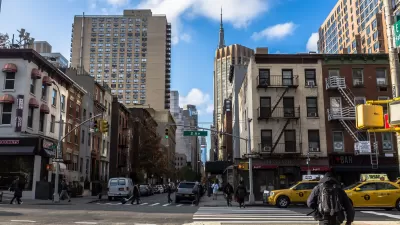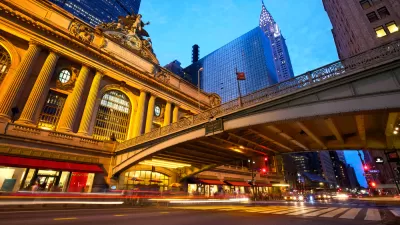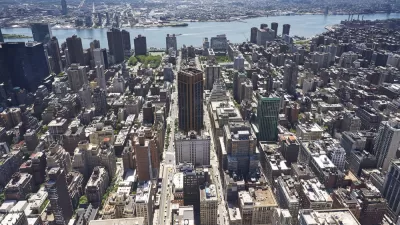After rezoning 37 percent of New York City, Mayor Bloomberg is pursuing one last major rezoning plan before he leaves office. But will a lame duck Council speaker and her colleagues grant the mayor a final victory?
Claims of infrastructure overload and indifference to the needs of the public realm and preservation have dogged the Bloomberg administration's plans to upzone the area around Grand Central Terminal since it was proposed more than a year ago. Nevertheless, "[t]he Bloomberg administration is scrambling to gather enough City Council votes to enact the mayor’s final plan for reshaping New York City’s skyline with a new generation of ever-taller skyscrapers," reports Charles V. Bagli.
"Many leading figures in the real estate industry, and many construction unions, support the plan, as does the Regional Plan Association, an influential private research organization. But a broad array of Manhattan community boards, preservationists and elected officials contend that the rezoning has been rushed, and could overwhelm a neighborhood whose streets are already congested and subway lines overcrowded."
"Robert Steel, the deputy mayor for economic development, insists that the administration is making headway," says Bagli. "But so far, opponents have not been persuaded."
FULL STORY: Clock Ticking, Bloomberg Seeks Council Approval of East Midtown Rezoning Plan

Planetizen Federal Action Tracker
A weekly monitor of how Trump’s orders and actions are impacting planners and planning in America.

Congressman Proposes Bill to Rename DC Metro “Trump Train”
The Make Autorail Great Again Act would withhold federal funding to the system until the Washington Metropolitan Area Transit Authority (WMATA), rebrands as the Washington Metropolitan Authority for Greater Access (WMAGA).

The Simple Legislative Tool Transforming Vacant Downtowns
In California, Michigan and Georgia, an easy win is bringing dollars — and delight — back to city centers.

The States Losing Rural Delivery Rooms at an Alarming Pace
In some states, as few as 9% of rural hospitals still deliver babies. As a result, rising pre-term births, no adequate pre-term care and "harrowing" close calls are a growing reality.

The Small South Asian Republic Going all in on EVs
Thanks to one simple policy change less than five years ago, 65% of new cars in this Himalayan country are now electric.

DC Backpedals on Bike Lane Protection, Swaps Barriers for Paint
Citing aesthetic concerns, the city is removing the concrete barriers and flexposts that once separated Arizona Avenue cyclists from motor vehicles.
Urban Design for Planners 1: Software Tools
This six-course series explores essential urban design concepts using open source software and equips planners with the tools they need to participate fully in the urban design process.
Planning for Universal Design
Learn the tools for implementing Universal Design in planning regulations.
Smith Gee Studio
City of Charlotte
City of Camden Redevelopment Agency
City of Astoria
Transportation Research & Education Center (TREC) at Portland State University
US High Speed Rail Association
City of Camden Redevelopment Agency
Municipality of Princeton (NJ)





























